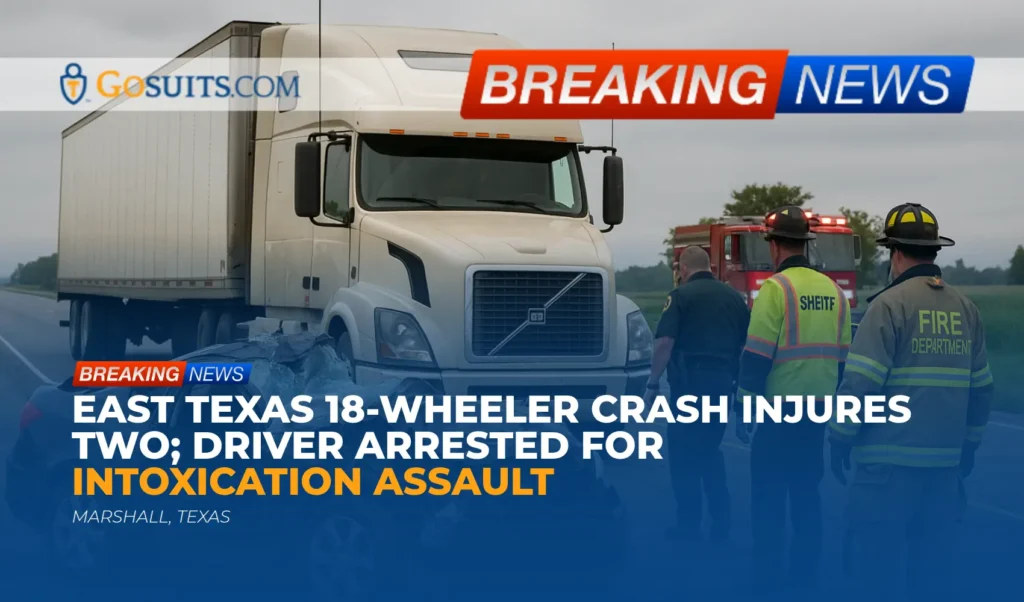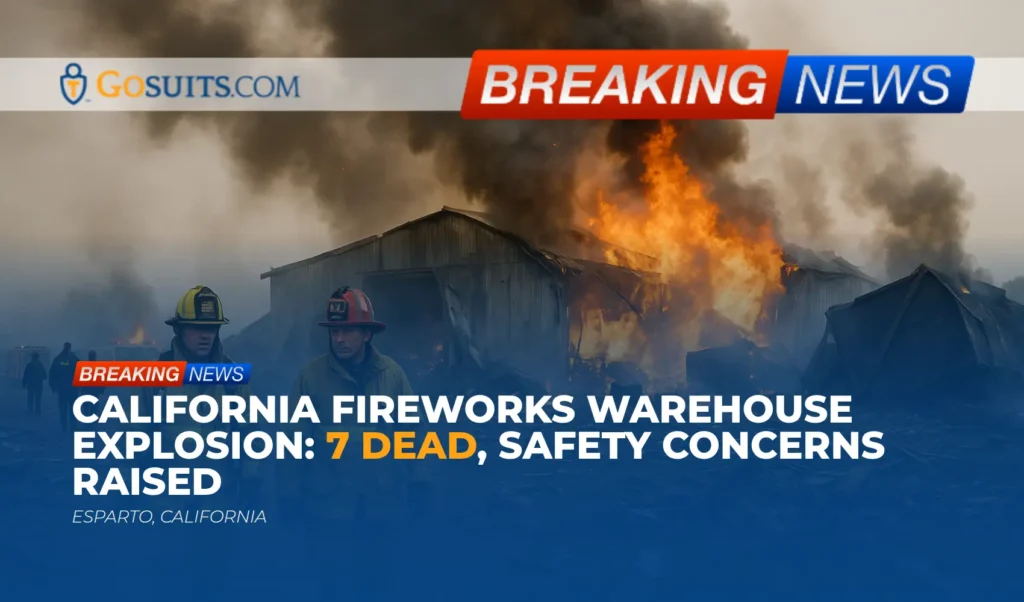On a Friday evening in Marshall, Texas, a serious 18-wheeler accident resulted in injuries to two individuals and a significant diesel fuel spill, raising concerns about road safety and potential legal ramifications. According to reports from the Marshall Police Department, the incident occurred at approximately 9:30 p.m. at the intersection of Highway 59 and Loop 390.
Incident Overview
The collision involved an 18-wheeler and a pickup truck hauling an empty horse trailer. Preliminary investigations indicate that the 18-wheeler allegedly ran a red light, leading to the collision. The force of the impact resulted in the release of diesel fuel onto the roadway and into a nearby drainage ditch, necessitating the involvement of Lone Star Hazmat for hazardous materials cleanup.
Two occupants of the pickup truck sustained injuries and were promptly transported to a local hospital for medical attention. While the police department has not disclosed specific details regarding their condition, the fact that they required hospitalization suggests the severity of their injuries.
The driver of the 18-wheeler, identified as 59-year-old Kenneth Janowski of Linden, was arrested at the scene. He faces charges of intoxication assault with a vehicle and was subsequently taken to the Harrison County Jail.
Legal Implications of Commercial Vehicle Accidents
Accidents involving large commercial vehicles, such as 18-wheelers, often present complex legal challenges due to the potential for severe injuries, significant property damage, and intricate regulatory frameworks governing the trucking industry. Determining liability in these cases typically requires a thorough investigation into various factors, including driver behavior, vehicle maintenance, and adherence to safety regulations.
Negligence and Liability
In personal injury law, negligence is a key element in establishing liability. Negligence occurs when a person or entity fails to exercise reasonable care, resulting in harm to another. In the context of an 18-wheeler accident, negligence could stem from various sources, including:
- Driver Negligence: This encompasses actions such as speeding, distracted driving, driving under the influence of alcohol or drugs, or violating traffic laws, as alleged in the current case.
- Trucking Company Negligence: Trucking companies have a responsibility to ensure the safe operation of their vehicles and the competence of their drivers. Negligence on the part of a trucking company could involve inadequate driver training, failure to conduct thorough background checks, improper vehicle maintenance, or pressure on drivers to meet unrealistic deadlines, leading to fatigue.
- Equipment Failure: Defects in the 18-wheeler’s components, such as brakes, tires, or steering mechanisms, can contribute to accidents. Liability in such cases may extend to the manufacturer of the defective part or the entity responsible for vehicle maintenance.
- Cargo Loading Issues: Improperly loaded or secured cargo can shift during transit, causing instability and increasing the risk of accidents. The party responsible for loading the cargo could be held liable if negligence in this area is a contributing factor.
Intoxication and Its Impact
The allegation of intoxication in this case introduces a significant dimension to the legal analysis. Driving under the influence of alcohol or drugs is a serious offense that can substantially increase the risk of accidents. If proven, intoxication can serve as strong evidence of negligence and may lead to enhanced penalties and greater liability for damages.
Spilled Diesel Fuel and Environmental Concerns
The diesel fuel spill resulting from the accident raises additional concerns related to environmental damage and potential cleanup costs. Hazardous material spills can contaminate soil and water sources, posing risks to human health and the environment. The responsible parties may face liability for the costs associated with environmental remediation and any resulting damages.
Personal Injury Claims and Damages
Individuals injured in an 18-wheeler accident may have the right to pursue a personal injury claim to recover damages for their losses. Damages in a personal injury case can include:
- Medical Expenses: This encompasses costs for past and future medical treatment, including hospital stays, surgeries, medications, physical therapy, and rehabilitation.
- Lost Wages: Individuals who are unable to work due to their injuries may be entitled to compensation for lost income, both past and future.
- Pain and Suffering: This category covers the physical pain, emotional distress, and mental anguish resulting from the injuries.
- Property Damage: Compensation may be available for damage to the victim’s vehicle or other property.
- Other Losses: Depending on the circumstances, other losses, such as disfigurement, permanent disability, or loss of enjoyment of life, may also be compensable.
The Role of Investigation
A thorough investigation is crucial in determining the cause of an 18-wheeler accident and establishing liability. This investigation may involve:
- Accident Reconstruction: Experts may analyze the accident scene, vehicle damage, and other evidence to reconstruct the events leading up to the collision.
- Review of Driver Records: Examining the driver’s logbooks, driving history, and any previous violations can provide insights into their driving habits and potential negligence.
- Vehicle Inspections: Inspecting the 18-wheeler for mechanical defects or maintenance issues can help determine if equipment failure contributed to the accident.
- Witness Interviews: Gathering statements from witnesses can provide valuable information about the accident.
- Review of Company Policies and Procedures: Examining the trucking company’s safety policies, driver training programs, and maintenance records can help assess their level of responsibility.
Commentary from Gosuits Marshall, Texas Personal Injury Attorney
Accidents involving 18-wheelers are often complex and can result in serious injuries and significant financial losses. The investigation of such accidents requires a skilled approach to gather and preserve critical evidence. Factors such as driver fatigue, improper maintenance, and violations of trucking regulations often contribute to these types of collisions. Victims of these accidents have rights, and understanding those rights is crucial in seeking fair compensation for their injuries and losses.





